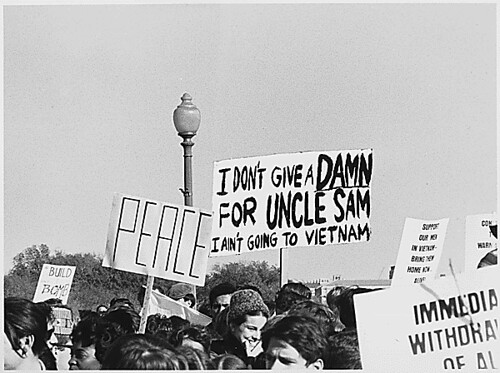ASA 2
During the lecture Prof. Hamamoto began by talking about the aftermath of World War II on Japanese-Americans. As is well known, due to the fact that Japan was the enemy, the United States wrongfully moved Japanese Americans to internment camps to "move them away from strategic military bases." However, the government was really just scapegoating Japanese Americans to re-assure the public of its safety. The internment camps had devastating effects on the Japanese Americans. Most of the second generation immigrants, known as Nissei, died before they were 60.
Hamamoto's lecture focused mainly on the third generation, known as Sansei, which was affected in many ways. During the war, many of them chose to join the army in an effort to prove to Americans that they supported the United States. As is normally the case during wars, these soldiers came back disenchanted from the war, and many of them turned to drugs and alcohol as an escape, effectively killing them. The Sansei also faced strong discrimination as a result of World War II. They responded not by protesting, but rather by trying to excel as much as they could in society. This led to Japanese Americans becoming part of the model minority. Also, 60% of the Sansei married Caucasians, suggesting an attempt to assimilate into American society. However, in doing so, they only showed that this type of silence was only detrimental to their people. The model minority myth was used by whites to turn the other races against Japanese Americans, making the situation even worse. Only when they began to help each other solve the drug problem, often with a little violence, and when they joined their voices with blacks following the death of Martin Luther King Jr. did things begin to get better. This resonates with the ideas in class about how staying silent is not the answer. We must take a stand and make ourselves heard to fight discrimination. Another point to take away from his lecture was that we can't rely on the help of others; we must save ourselves.
That was my biggest takeaway from the lecture. His feelings about the draft and being drafted during the Viet Nam War were also another intriguing topic. Until the lecture, I had never thought of the draft as a way for the government to essentially take control over me. Perhaps this is because the draft has not been active in the United States at any time in my life, so I have yet to think about it. I certainly did not give it a second thought when signing up for it after turning 18.
Japanese Americans who signed up for the army




.jpg)


